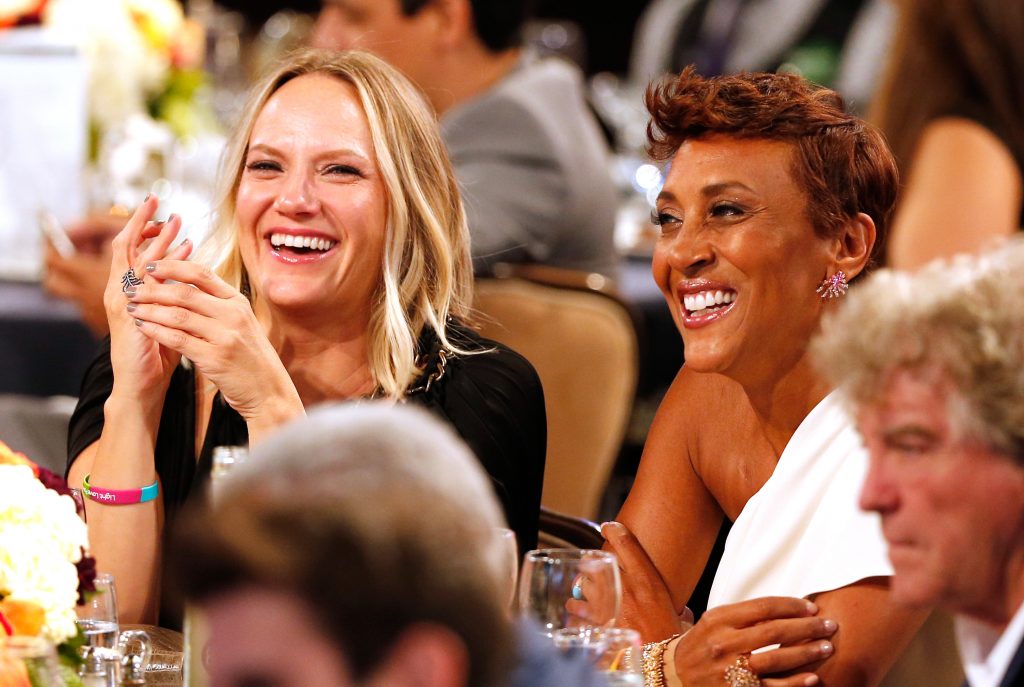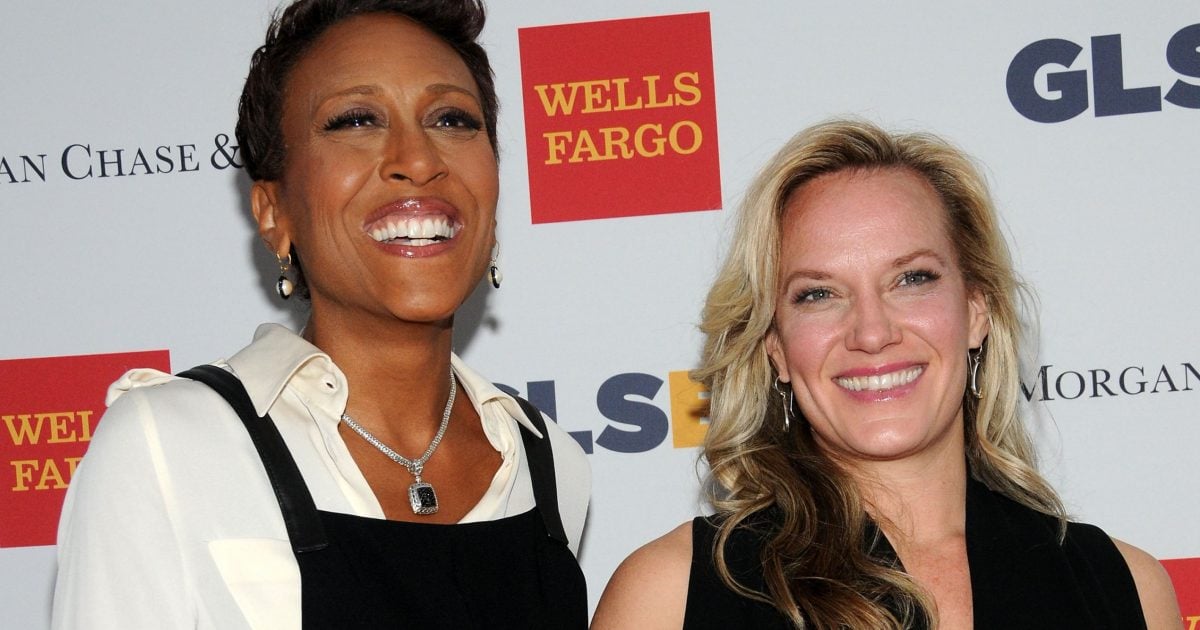Role Reversal
- Watching a loved one go through a cancer battle can many times be even more difficult than going through your own.
- This is exactly what GMA’s Robin Roberts, a breast cancer survivor, is experiencing with her partner of 17 years, Amber Laign, who was diagnosed late last year at age 47.
- Caregiver burnoutthe stress, anger, fatigue, and illness that can come from putting another person's needs ahead of your ownis real (even for someone like Roberts). It can sneak up on you if you don't take care of yourself.
This is exactly what GMA‘s Robin Roberts, a breast cancer survivor, is experiencing with her partner of 17 years, Amber Laign, who was diagnosed late last year at age 47.
Read More
View this post on Instagram
Though Roberts was understandably thrown for a loop with this unfortunate news, it is perhaps a blessing in disguise that she knows exactly what Laign is going through, especially since she has been battled cancer twice. Roberts underwent a bone barrow transplant in 2012 when doctors discovered she had myelodysplastic syndrome (MDS).
How Does A Bone Marrow Transplant Treat MDS?
“You’re just numb when you when you hear something like that,” she said of the experience. As for Laign’s journey, the author shared that she and Laign recalled the things they did for one another when the roles were reversed to help each other through this new chapter, which hasn’t been easy.

“It was a little frightening when she was not reacting well to the chemo, but the fact that she is doing better now, we are in really, really good spirits,” Roberts shared. “But it was a little daunting there, for a time. People who go through this, they know. Cancer, it’s not a straight line cancer treatment. It’s peaks and valleys, and thankfully, we’re at a peak right now after being in a valley for a bit.”
Related: Husband Shares Emotional Rollercoaster On TikTok as He Helps Wife Fight Cancer
Roberts is known for her positivity, and wants fans to know that it’s something she has had to work on after her own health troubles, because that’s the only way she chooses to face life these days.
“I know people feel that I’m always upbeat, I’m always happy,” she says. “That’s not the case. It is the majority of the time because I’ve gotten in a habit of being optimistic. It’s a muscle that gets stronger with use.”
Robin's Cancer Battles
Radiant Ms. Roberts was diagnosed with breast cancer in 2007 after discovering a lump. Ironically, she made this discovery while prepping for a news segment on performing self-checks, which shows just how important they are to perform at home.
"At first I thought, 'This can't be. I am a young, healthy woman,'" Roberts said. The host's early detection was a critical factor in her survival. She treated her breast cancer with surgery, one of several treatment options for this disease, which can also be treated with radiation, chemotherapy, hormone therapy and immunotherapy.
In addition to battling breast cancer, Roberts had MDS, which stands for myelodysplastic syndromea rare type of blood cancer where abnormal cells form in the body's bone marrow. Roberts had to undergo a bone marrow transplant.
Chemotherapy for breast cancer could have likely contributed to Roberts' secondary cancer. Although it is rare, it is one of the risks of treatment. MDS caused by cancer treatment is called "secondary MDS" or "treatment-related MDS."
Surviving one cancer battle is intense enough, but having to go through it a second time can be extremely discouraging. Now, Roberts is having to go through it yet again with her beloved Amber.
From Cancer Survivor to Caregiver
While it is undeniably difficult to be diagnosed with and treated for cancer, twice in Roberts' case, the family members and friends who care for cancer patients also face their own set of challenges.
"Caregiving is the most important job in the universe, because you are there through the highs and lows," Julie Bulger, manager of patient and family-centered care at Vanderbilt-Ingram Cancer Center in Nashville, TN, tells SurvivorNet. "You are there to support your loved one, to manage all of the daily tasks as everything is changing in your life."
Caregiver burnoutthe stress, anger, fatigue, and illness that can come from putting another person's needs ahead of your ownis real. It can sneak up on you if you don't take care of yourself. "It is important to have some things that you can do outside of the focus of caring for somebody that you love with cancer," Bulger says.
She suggests that you take a walk. Get a massage. Visit a support group for cancer caregivers, either online or in person. And see a therapist if you're struggling to cope with all of your new responsibilities. Joining a support group and building your support team is often a very important strategy and can help prevent or reduce the risk of caregiver burnout.
Know that you are doing truly important work, and appreciate yourself for it. "There's so much evidence that outcomes are better when somebody has an incredible caregiver by their side," Bulger says. Research also finds that caregivers who take good care of themselves provide the best quality of care. "So you are helping your loved one in more ways than you know."
Laign is quite lucky to have someone like Roberts by her side. The experience made them stronger before and will hopefully make them exponentially stronger together this time around.
We wish you well, Amber!
Learn more about SurvivorNet's rigorous medical review process.

